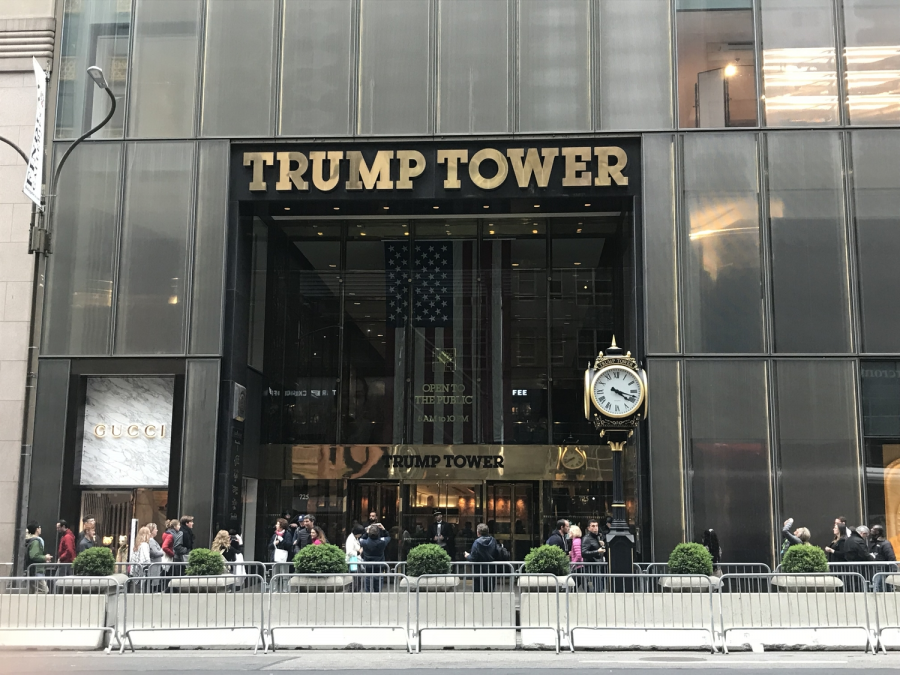Questions Raised as Mueller Investigation Comes to an End
Special Counsel Robert Mueller ends his two-year investigation, leaving both sides of the aisle wondering: what happens now?
Many believed this investigation would end with clearer answers, but most are left unsatisfied with the lack of resolution.
For the last two years, Special Counsel Robert Mueller has been investigating President Trump and his campaign on possible ties to Russia. In late March 2019, after months of arrests, indictments, and guilty pleas, the investigation came to an end, and a summary of the Mueller Report was released to the general public, creating mass pandemonium. A month later, the full report was released to the public by the Department of Justice.
The summary, written by Attorney General William Barr, was met with questions and criticism. This stemmed from the fact that the short four-page summary was written by someone who many believed was biased towards helping the Trump presidency.
Barr, who was appointed as Attorney General by Trump after the resignation of Jeff Sessions in late 2018, has worried Democrats and some Republicans with his ideas about executive power. He has been a vocal denouncer of the Mueller investigation, once claiming that the investigation into Hillary Clinton’s involvement in the uranium deal between the U.S. and Russia as Secretary of State had more basis for investigation than Trump’s campaign and Russia.
“Barr is definitely a biased party. He was appointed by Trump, so it’s pretty obvious where his loyalties lie,” Daniel Seo ’21.
In early April 2019, Barr decided to support and pursue Trump’s claim that there was a “spy” in his campaign, further muddying his supposed impartiality. Yet, even with these controversies, Democrats remain confident in the credibility of the Mueller investigation. In an interview with the Associated Press, House Speaker Nancy Pelosi said, “I don’t trust Barr; I trust Mueller.”
Barr’s summary does look favorably on Trump, causing people to believe that he was biased. This belief was exasperated when Trump went on Twitter to celebrate his exoneration. The summary claimed that there was no evidence found of collusion, although it remained ambiguous when it came to possible obstruction of justice.
“The summary does not provide enough evidence to prove without a doubt that Trump is guilty of any of the crimes for which he has been accused, during and after his campaign and victory,” said Nicholas Tappe ’22.
However, when Barr finished redacting the full 448-page report and released it to the public in late April 2019, many of the claims in his summary were brought into question. Media outlets have been analyzing and re-analyzing this document. Everyone has their own viewpoints and biases, but three clear conclusions can be drawn.
First, there is not enough evidence to prove that Trump or his associates were part of a criminal conspiracy with Russia to disrupt the 2016 presidential election. Mueller tried to prove if there was a “coordination,” which is the legal way to define the word collusion, between Trump and Russia, but the evidence did not hold up.
Additionally, another conclusion is that obstruction cannot be strongly proven either, mostly due to the power that Trump holds as president. In Mueller’s opinion, a president can be charged with obstruction only if they use their executive power in an illegal manner. However, firing members of their administration and closing Department of Justice cases falls in the purview of the executive branch and cannot be seen as obstruction. This theory has been pushed before by Barr in a nineteen-page brief. Mueller does, however, leave open the possibility of charging Trump with obstruction after his presidency — a possibility that Barr strongly opposes.
The report also explicitly states that Trump has not been cleared. The report claims that if they were confident after a thorough investigation that Trump did not commit obstruction of justice, “[they] would so state.” Mueller makes it clear in the report that Congress can choose to step in to stop the corrupt use of presidential power. Democrats in Congress may use that language to justify their burgeoning inquiries.
Moreover, throughout the report, Mueller highlights instances where Trump has tried to harm the investigation. The report claims that Trump has tried a variety of methods to prevent a full investigation, from trying to remove the Special Counsel to the attempted use of official power to limit the scope of the investigation. Mueller uses these instances, along with the plethora of lies that have been coming out of the White House for the past two years, to create a pattern of behavior that raises a lot of suspicions.
As Democrats and Republicans alike prepare for the 2020 presidential election, the findings and implications of this report weigh heavily on all their minds and the country remains divided. The White House released a letter blasting the whole report, while the House has begun holding hearings for the Mueller report. An investigation started in order to bring more clarity to a chaotic time has, in many ways, created more questions than answered them.
Sadia Haque is a Senior Staff Reporter for ‘The Science Survey’ and a Academics Section Editor for ‘The Observatory.’ She finds journalism appealing...

